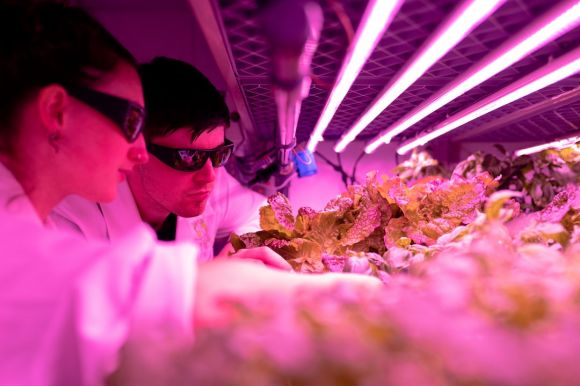Genetic engineering, a field that involves manipulating the genes of living organisms, has become a powerful tool in modern science. This revolutionary technology has the potential to transform various aspects of our lives, ranging from agriculture to medicine. With its ability to modify genetic material, genetic engineering offers us unprecedented possibilities and opportunities. In this article, we will explore the power of genetic engineering and its implications for the future.
Enhancing Crop Yield and Quality
One of the most significant applications of genetic engineering is in agriculture. By modifying the genetic makeup of crops, scientists can enhance their yield and quality. For example, genetic engineering has allowed the development of crops that are resistant to pests, diseases, and environmental stressors. These genetically modified organisms (GMOs) have the potential to revolutionize agriculture by increasing crop productivity and reducing the need for harmful pesticides.
Fighting Genetic Diseases
Genetic engineering also holds great promise in the field of medicine. By altering the genes responsible for genetic disorders, scientists can potentially cure or alleviate the symptoms of these diseases. For instance, gene therapy, a form of genetic engineering, has shown promise in treating conditions like cystic fibrosis and muscular dystrophy. With further advancements in genetic engineering, we may be able to eradicate genetic diseases altogether.
Creating New Medicines
In addition to treating genetic diseases, genetic engineering can also be used to create new medicines. Scientists can engineer organisms, such as bacteria or yeast, to produce therapeutic proteins or drugs. This technique, known as biopharming, has the potential to revolutionize the pharmaceutical industry by making the production of medicines more efficient and cost-effective.
Protecting Endangered Species
Genetic engineering has the potential to save endangered species from extinction. By manipulating the genes of these species, scientists can enhance their chances of survival. For example, genetic engineering can be used to increase the genetic diversity of small populations, making them more resilient to environmental changes. Additionally, by altering the genes responsible for certain diseases or conditions, scientists can improve the overall health and well-being of endangered species.
Addressing Environmental Challenges
Genetic engineering can also play a crucial role in addressing environmental challenges. For instance, scientists are exploring the possibility of using genetically modified organisms to clean up pollutants or degrade harmful substances in the environment. By engineering microorganisms to break down pollutants, we can mitigate the impact of pollution on ecosystems and human health.
Ethical Considerations
While the power of genetic engineering is undeniable, it also raises important ethical considerations. The ability to manipulate genes raises questions about the limits of human intervention in the natural world and the potential consequences of our actions. It is crucial that we approach genetic engineering with caution and consider the potential risks and ethical implications.
In conclusion, the power of genetic engineering is immense. From enhancing crop yield and quality to fighting genetic diseases, genetic engineering offers us a wide range of possibilities. However, we must also tread carefully and consider the ethical implications of our actions. With responsible and thoughtful use, genetic engineering has the potential to transform our world for the better.
